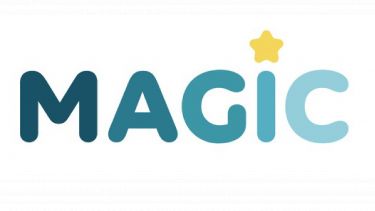MAGIC trial
Melatonin for Anxiety prior to General anaesthesia In Children (MAGIC).
A multicentre, parallel randomised controlled trial of melatonin versus midazolam in the premedication of anxious children attending for elective surgery under general anaesthesia.
Trial summary
Anxiety ahead of general anaesthesia is common, with up to 50% of children displaying manifestations of distress-behaviour at the point of anaesthetic induction.
Midazolam, the current standard premedication given to an anxious child ahead of surgery has been shown to be effective, although there are numerous adverse effects which make the medication less than ideal.
Melatonin offers many potential benefits over Midazolam.
MAGIC aims to compare the effectiveness and side effects of Melatonin versus Midazolam premedication, and to determine whether Melatonin offers sufficient benefit to warrant change in standard NHS practice.
Background
Dental extractions and tonsillectomies compose the two most common operations for children undergoing general anaesthesia in the UK, accounting for 60,000 and 34,000 operations per year, respectively.
Anxiety ahead of general anaesthesia is common, with up to 50% of children displaying manifestations of distress-behaviour at the point of anaesthetic induction.
Anxiety and distress in a child may lead to non-compliance and result in rescheduling of elective surgery; it may furthermore lead to greater post-operative pain, agitation and behavioural changes after surgery including sleep disturbances.
Midazolam, the current standard premedication given to an anxious child ahead of surgery has been shown to be effective, although there are numerous adverse effects which make the medication less than ideal.
One major consequence of benzodiazepine drugs such as midazolam is a sedative effect, which necessitates theatre transfer of the premedicated child, and also significantly delays post-operative recovery.
Further concerns include the potential for respiratory suppression and also unpredictable effects on children which may result in agitation rather than anxiolysis.
The increased incidence of learning disabilities with repeated anaesthetic exposure has been documented in a landmark study by Wilder et al., which highlighted the potential long-term risks of using sedative agents such as benzodiazepines in anaesthesia of young children.
The MAGIC trial
This study is to establish comparative effectiveness and side effect profile of melatonin versus midazolam as premedication in children aged 3-14 with high levels of preoperative distress prior to General Anaesthetic for Elective Surgery, and to determine whether melatonin offers sufficient benefit to warrant change in standard NHS practice.
Melatonin offers many potential benefits over midazolam.
These benefits may include greater paediatric acceptance of taste, walking rather than bed transfer from holding to theatre, improved postoperative analgesia, reduced postoperative sedation, reduced postoperative sleep disturbance, improved recovery times and avoidance of respiratory suppression.
Participants requiring Elective dental, ophthalmological, ENT, gastroenterology, radiology, plastic, orthopaedic, urology, or other general surgeries under general anaesthesia in secondary/tertiary care centres will be recruited, and randomised in the ratio 1:1 to either the intervention arm (receiving melatonin 30 mins prior to general anaesthetic), or to usual care (midazolam 30 mins prior to general anaesthetic).
Both groups will be followed up for 14 days.
Participating sites
|
Site |
Principal Investigator |
Status |
|
Aberdeen |
Gil Gavel |
Open |
|
Barnsley |
Hamish Paton |
Open |
|
Bolton |
Rachel Smith |
Open |
|
Doncaster |
Padma Gopal |
Open |
|
Dundee |
Simon Crawley |
In set-up |
|
East Grinstead |
Ed Pickles |
Open |
|
Fife |
Ian Leeuwenberg |
Open |
|
Glasgow |
Tony Moores |
In set-up |
|
Kilmarnock |
Tim Geary |
Open |
|
Kings |
Natasha Woodman |
In set-up |
|
Manchester |
Vimmi Oshan |
In set-up |
|
Medway |
Samantha Black |
In set-up |
|
Middlesbrough |
Amy Norrington |
Open |
|
Newcastle |
Christopher Vernazza |
Open |
|
Royal Berkshire |
Dana Kelly |
In set-up |
|
Sheffield |
Claire Biercamp |
Open |
|
Sherwood |
Puran Khandelwal |
Open |
|
Shrewsbury |
Karthikeyan Selvaraju |
In set-up |
|
Stevenage |
Pranav Kukreja |
Open |
|
Sunderland |
Sean Cope |
Open |
|
Walsall |
Klaus Mahler |
In set-up |
|
Whipps Cross |
Robert McCartney |
In set-up |
Latest news
September 2022
Welcome back to the MAGIC trial Chief Investigator, Professor Chris Deery.
Funder
This project is funded by the National Institute for Health Research Health Technology Assessment (NIHR HTA) Programme (project number 16/80/08). Any views or opinions expressed are those of the authors and do not necessarily reflect those of the HTA programme, NIHR, NHS or the Department of Health.
Sponsor
Sheffield Teaching Hospitals NHS Foundation Trust
Study contacts
| Name | Role | Organisation | Contact |
|---|---|---|---|
| Professor Chris Deery | Chief Investigator | School of Clinical Dentistry | c.deery@sheffield.ac.uk |
| Professor Matt Wilson | Co-Investigator/Lead Anaesthetist | ScHARR, University of Sheffield | m.j.wilson@sheffield.ac.uk |
| Dr Robert Bolt | Co-Investigator | School of Clinical Dentistry | r.bolt@sheffield.ac.uk |
| Marie Hyslop | Study Manager | CTRU, University of Sheffield | m.c.hyslop@sheffield.ac.uk |
| Kate Hutchence | Research Assistant | CTRU, University of Sheffield | k.j.hutchence@sheffield.ac.uk |
| Adam Lloyd | Trial Support Officer | CTRU, University of Sheffield | adam.lloyd@sheffield.ac.uk |
| Amanda Loban | Data Management | CTRU, University of Sheffield | a.loban@sheffield.ac.uk |
| Richard Simmonds | Data Management | CTRU, University of Sheffield | r.p.simmonds@sheffield.ac.uk |
| Tracey Young | Health Economist | HEDS, University of Sheffield | t.a.young@sheffield.ac.uk |
| Diana Papaioannou | CTRU Lead | CTRU, University of Sheffield | d.papaioannou@sheffield.ac.uk |
| Esther Herbert | Medical Statistician |
CTRU, University of Sheffield | e.herbert@sheffield.ac.uk |

